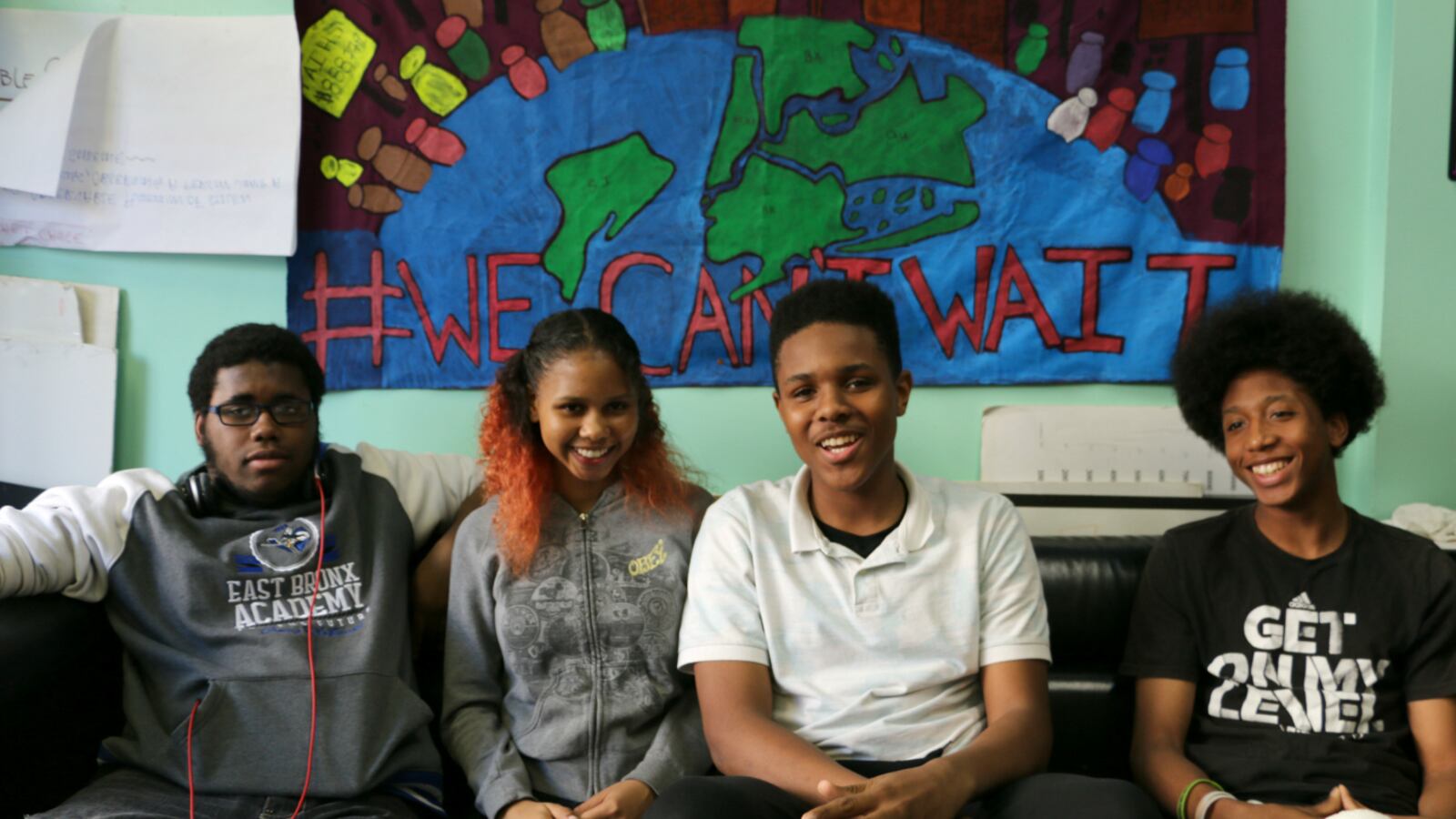Not long after Zaire Harley started high school, a guidance counselor pulled her aside and asked whether she’d like to do a “circle.”
Though the counselor had never met Zaire, he’d heard that trouble was brewing between her and a girl who believed Zaire was gossiping about her. Zaire agreed to the circle, which turned out to be a space for the girls to sit down with the counselor and a teacher’s aide and discuss the feud.
“After the meeting there was no problem,” said Zaire, a ninth grader at Nelson Mandela School for Social Justice in Bedford-Stuyvesant, Brooklyn. “It stopped both of us from getting suspended.”
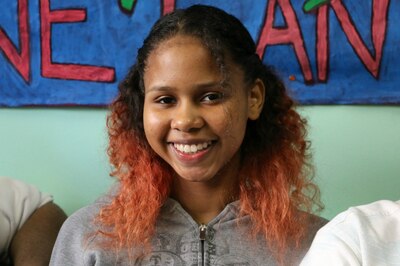
Schools across New York City are giving out fewer and fewer suspensions, prodded along by a new discipline code that limits when students can be sent out of their schools. That has left some schools grasping for new discipline tactics, with teachers uncertain about how to respond to serious misbehavior.
But other schools have spent years building up alternative systems — often called “restorative” approaches — that include conflict mediation, counseling, and relationship-building groups.
Over pizza one recent afternoon, Chalkbeat spoke to a group of students from small public high schools that have adopted those approaches. Zaire and four other student-members of the Urban Youth Collaborative, a coalition of New York City advocacy groups that push for restorative practices, explained what those practices look like in their schools and why they find them so powerful.
‘It made me feel that I wasn’t wanted’
Brandon Parker, a junior at Validus Preparatory Academy in the Bronx, said a classmate slapped the back of his head last year.
As Brandon went to respond, a teacher intervened and both boys were suspended for two days, he said.
“It made me feel that I wasn’t wanted in class, or I wasn’t wanted around people,” he said, explaining why he supports a less punitive approach to discipline. “Suspensions do not help to establish a good school environment,” he added. “It only increases tension between students and teachers.”
‘We get to push past stereotypes’
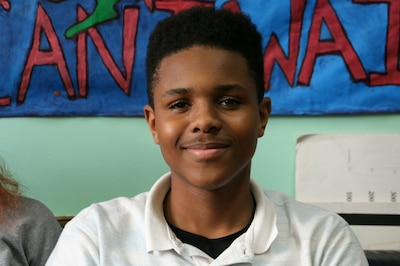
The way Khaliq Hollingsworth sees it, most of the disputes that happen at schools — whether between students or adults and students — can be traced back to misunderstandings.
“They go off of stereotypes a lot. ‘Oh all these kids are bad. Minorities are bad and all that,’” said Khaliq, a 10th-grader at the Academy of Innovative Technology in Brooklyn. “They jump to these conclusions that put up this barrier.”
His school tries to curb such misunderstandings through weekly small-group meetings among students and teachers. The school also sets up conferences between people who are having problems. Khaliq requested one with a school safety agent whom he wasn’t getting along with.
“After that, he acted different. It was like a change in attitude,” Khaliq said. “When he talked to me, instead of talking to me in a disrespectful manner, he talked to me like I was a young adult, like I was someone in my right mind.”
‘I never had seen teachers and students have legit conversations’
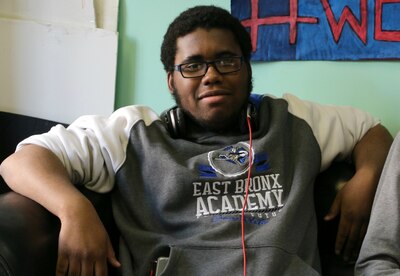
When Latrell Stone started at the East Bronx Academy for the Future six years ago, a small infraction could land a student in detention or sometimes even lead to a suspension, he said.
“The school environment was just very, very negative,” said Latrell, who is now in 12th grade. “A lot of times students didn’t feel like coming to school because it would be the same thing: I’m going to walk into this classroom, I’m going to get a suspension or detention for something as little as throwing a little paper ball.”
But over the past few years, Latrell has watched his school transform the way it responds to misbehavior. Now, as staffers talk to students about their actions, new lines of communication develop that remain open even after a conflict is resolved.
“Six years ago, I never had seen teachers and students have like legit conversations with each other,” he said. But “ever since these practices have been in place, teachers and students get along with each other really well.”
‘How to be better people’
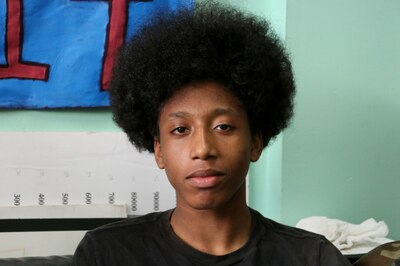
Students at these schools say they learn how to settle disputes without resorting to violence — a skill that involves putting arguments into perspective.
“Students have their emotional moments when they think about the unthinkable,” said Zion Harley, Zaire’s twin brother, who also attends the Nelson Mandela School for Social Justice. “But then they have their moments when they sit down and realize, ‘Maybe this is not as serious as it seems.’”
That gets to the crux of restorative practices, Zion said. By cultivating a sense of community at school and training students to solve problems peacefully, harsh penalties like suspensions can become less necessary.
“You’re teaching them where they went wrong and how to prevent such wrong actions so they won’t go down this path again,” he said. “You’re teaching them how to be better people.”

